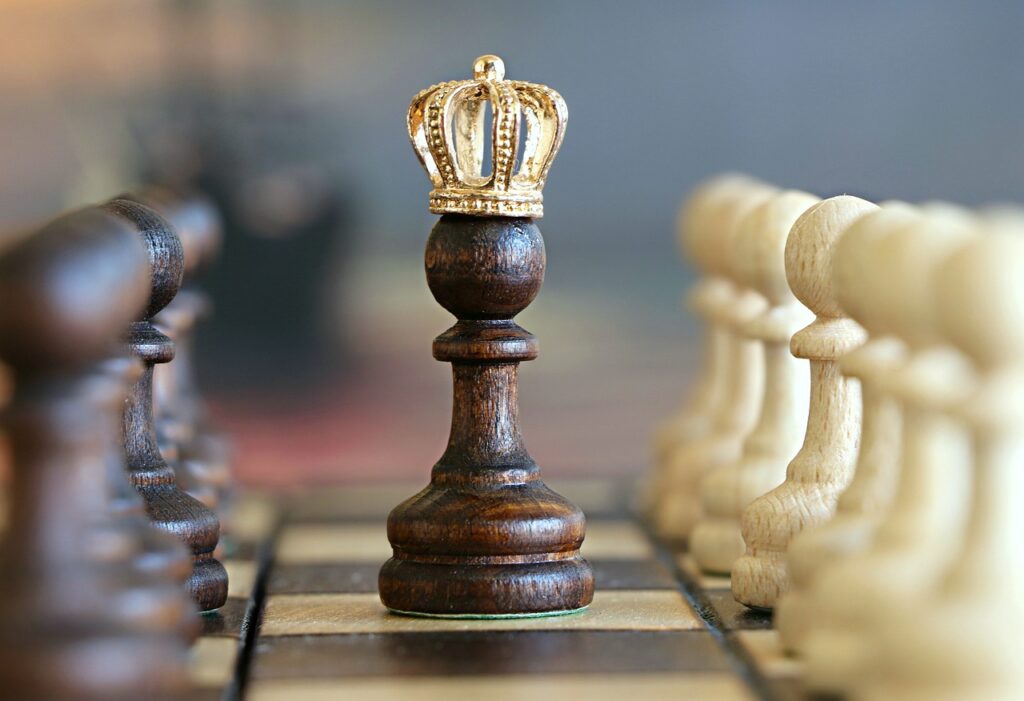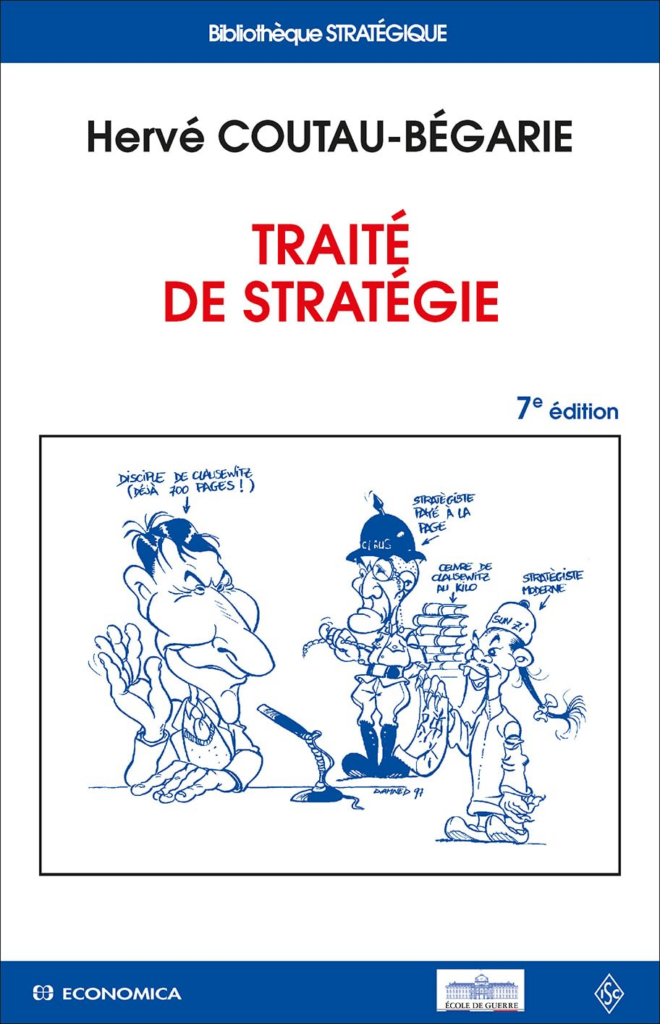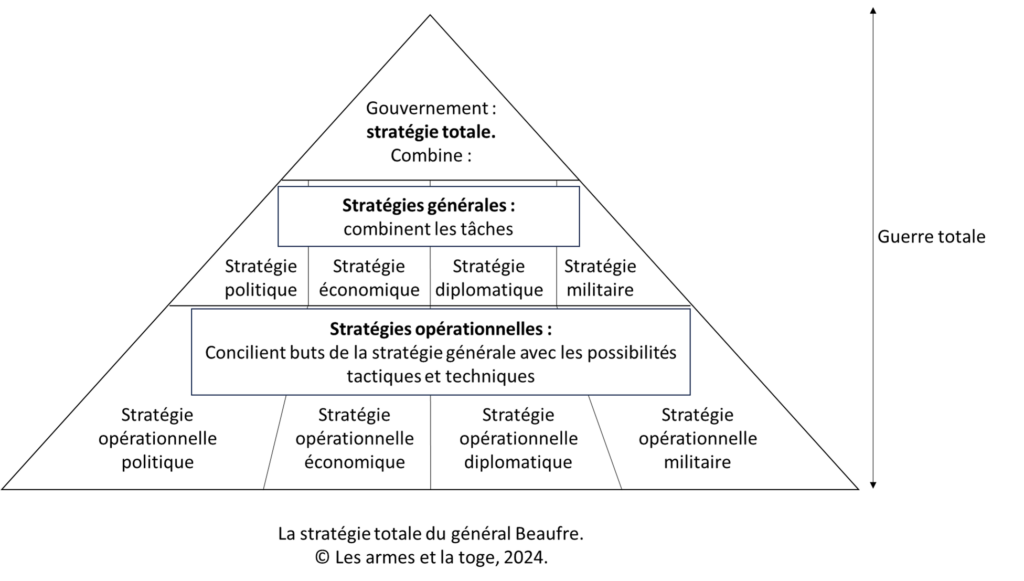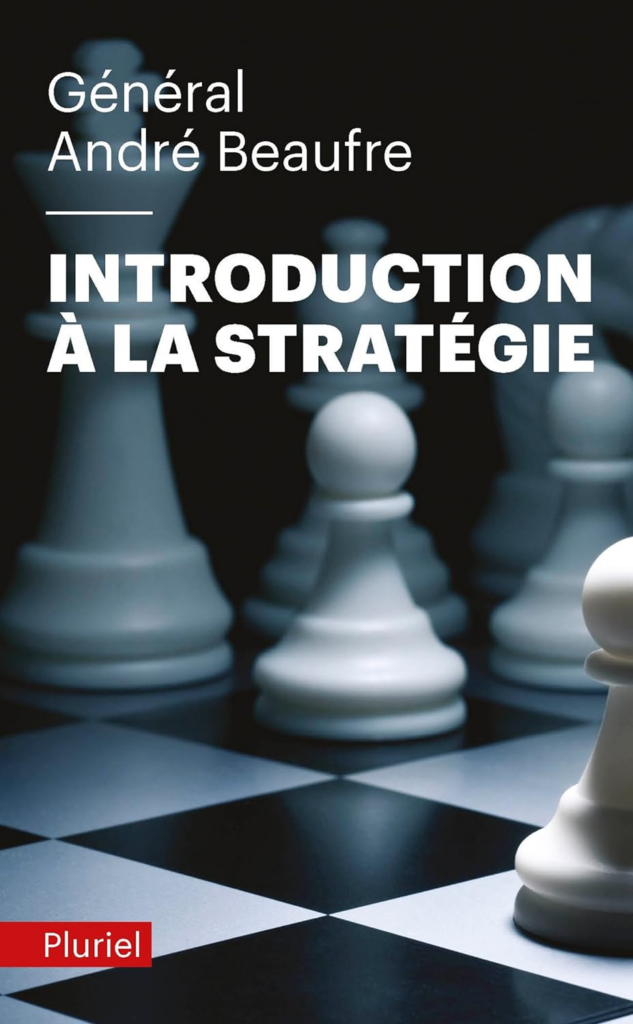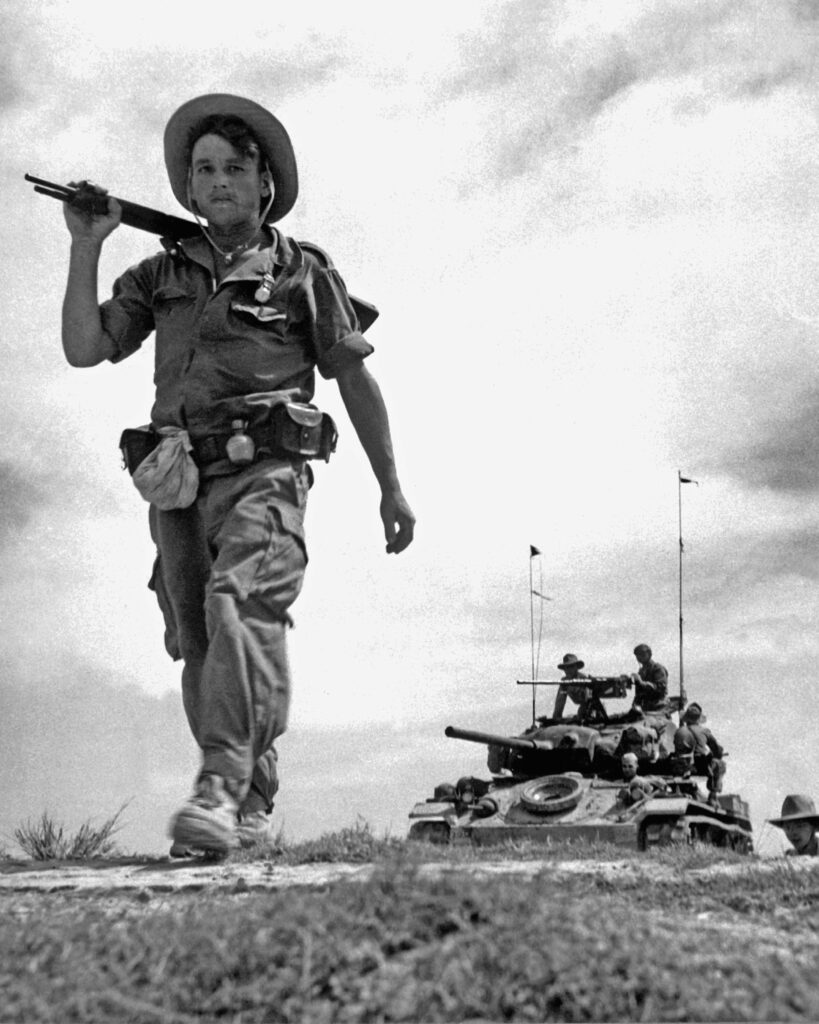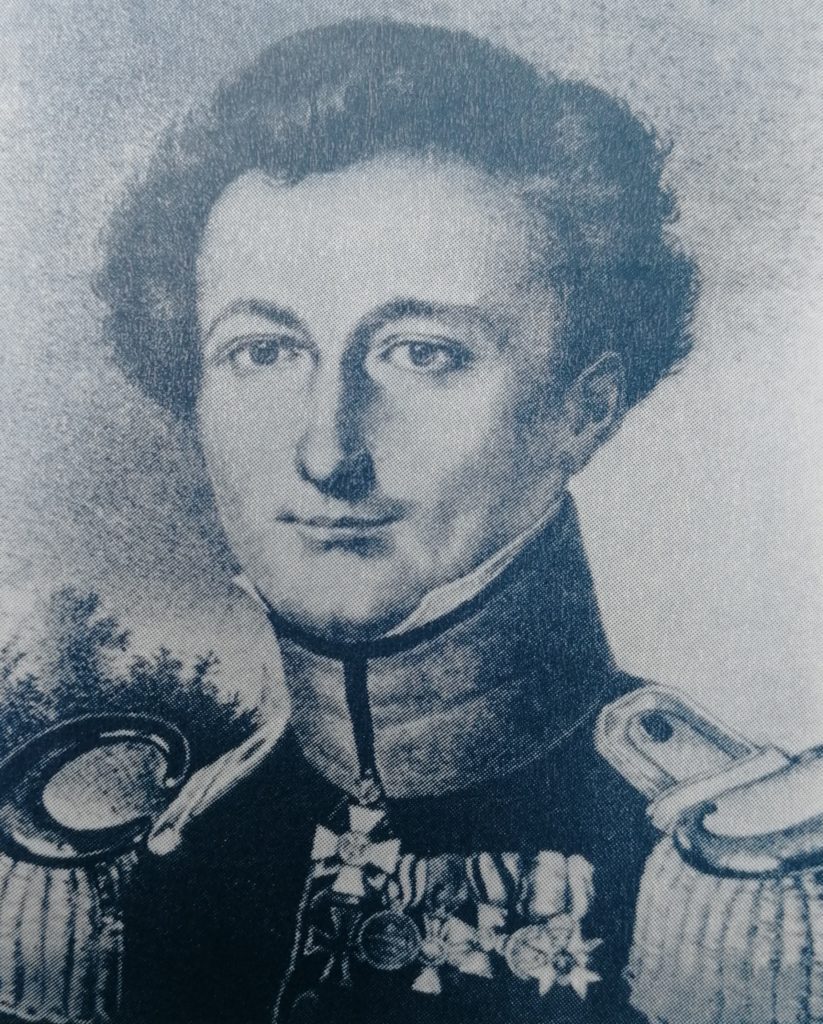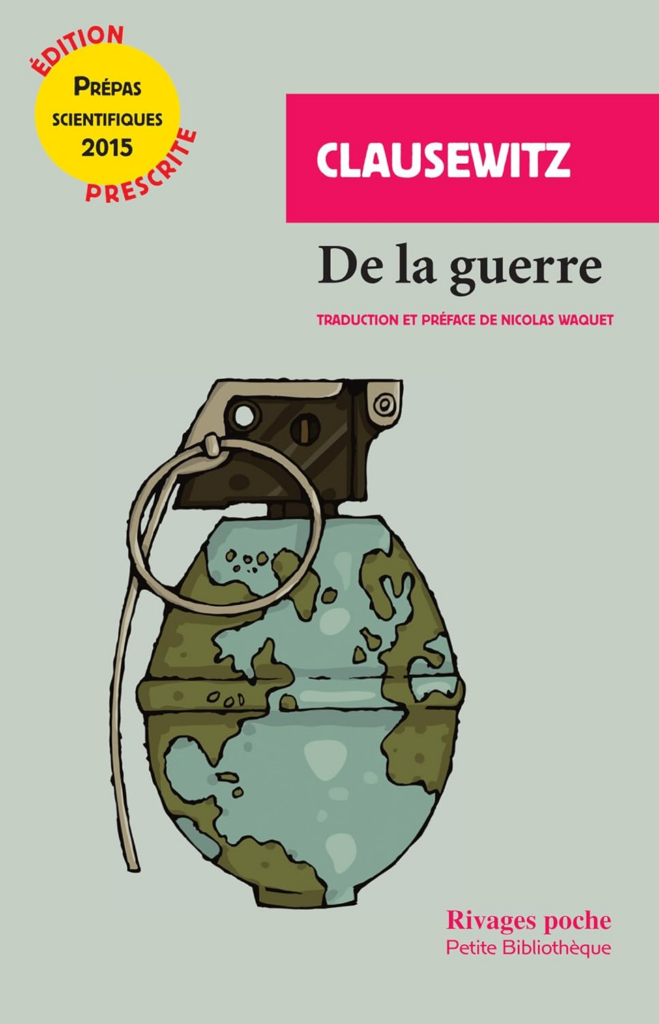Militaire et humanitaire, deux pôles qui semblent opposés, se retrouvent aujourd’hui imbriqués au cœur des conflits hybrides contemporains. Analyse de Philippe Rambure, ancien officier devenu humanitaire, qui témoigne de sa double expérience du terrain.
Depuis deux décennies, les guerres contemporaines échappent aux catégories classiques de la pensée stratégique. Le modèle westphalien de la guerre interétatique, régi par des armées régulières et un droit codifié, s’efface devant une mosaïque de violences diffuses, où se mêlent acteurs armés, puissances régionales, milices communautaires, entreprises de sécurité privées et organisations humanitaires. Ces conflits dits hybrides ou asymétriques ne se jouent plus seulement sur un terrain militaire, mais aussi dans les perceptions, les récits et les imaginaires collectifs (Kaldor, New and Old Wars, 2012).
Ce glissement bouleverse les repères de l’action humanitaire et militaire. Les soldats doivent « gagner sans perdre leur âme » : vaincre des adversaires qui se fondent dans la population tout en respectant les normes du droit international humanitaire (DIH). Les humanitaires, eux, doivent « agir sans trahir leurs principes » : secourir sans être instrumentalisés, négocier sans se compromettre. Entre ces deux sphères, une zone grise s’est formée, où la neutralité devient suspecte et où la légitimité se mesure autant à la morale qu’à la stratégie.
La République centrafricaine (RCA), le Burkina Faso, la République démocratique du Congo (RDC) et le Yémen, pays où j’ai travaillé en tant qu’humanitaire, incarnent cette complexité. Dans ces contextes, les frontières entre civils et combattants, entre aide et guerre, entre communication et propagande, se brouillent. Le soldat distribue de l’aide humanitaire ; l’humanitaire négocie avec des milices ; le droit devient instrument de pouvoir.
Comment concilier, dans ces conflits hybrides, les impératifs d’efficacité militaire et les principes humanitaires, alors que la distinction entre guerre et paix, entre combattant et civil, devient toujours plus incertaine ?
Les dilemmes moraux et opérationnels qui traversent ces espaces ne sont pas des défaillances, mais les révélateurs d’une tension constitutive de la guerre moderne : la confrontation entre la logique de la nécessité et celle de l’humanité.
L’enjeu n’est donc pas de supprimer ces dilemmes, mais de les penser : développer une éthique, témoin de l’ambiguïté des situations. Cette approche invite à dépasser le clivage stérile entre cynisme stratégique et idéalisme moral.
Le texte qui suit s’appuie sur des observations de terrain au Sahel, en RCA, en RDC et au Yémen, ainsi que sur les cadres produits par le Comité international de la Croix-Rouge (CICR), les Nations unies et plusieurs organisations non gouvernementales. Elle vise à montrer comment, dans la pratique, les dilemmes militaires et humanitaires se croisent et se nourrissent, révélant la nécessité d’une réflexion commune sur la légitimité de l’action.
Lire aussi Histoire du porte-avions.
Les dilemmes militaires : agir sans perdre la légitimité
La redéfinition du champ de bataille
Les armées contemporaines évoluent dans un espace où la frontière entre le champ militaire et la société civile s’estompe. La guerre, écrit Frank Hoffman, est désormais « un continuum d’opérations militaires, politiques et informationnelles » (Conflict in the 21st Century, 2007). Le champ de bataille s’étend aux réseaux sociaux, aux flux financiers, à la diplomatie numérique ; il devient un environnement intellectuel autant que physique.
Dans ce contexte, la légitimité est devenue une ressource stratégique. Une frappe efficace, mais moralement discréditée peut transformer une victoire tactique en défaite politique. Les armées sont donc contraintes de conjuguer efficacité opérationnelle et crédibilité éthique, dans un espace où chaque action est immédiatement médiatisée.
J’ai pu vérifier cette mutation au Burkina Faso, où la lutte contre les groupes armés affiliés au Jama’at Nasr al-Islam wal Muslimin (JNIM) et à l’État islamique au Grand Sahara (EIGS) s’est accompagnée de campagnes de désinformation et de méfiance populaire. La création des Volontaires pour la défense de la patrie (VDP), milices communautaires encadrées par l’État, illustre le dilemme : elles renforcent la réactivité militaire, mais contribuent aussi à la fragmentation du tissu social et à la politisation de la violence.
Le dilemme de la distinction et de la proportionnalité
Le principe de distinction entre civils et combattants, fondement du DIH (art. 48 et 51 du Protocole additionnel I de 1977), devient presque inapplicable dans les conflits asymétriques. Les adversaires se fondent dans la population, utilisent des infrastructures civiles et manipulent les symboles humanitaires.
Ainsi, au Burkina Faso, des attaques contre des convois civils ont souvent entraîné des ripostes militaires controversées, où l’identification des cibles restait incertaine. Au Mali, la frappe aérienne de Bounti en 2021 illustre cette difficulté : une opération jugée légitime par les forces françaises, mais dénoncée par la population et par le rapport d’enquête du HCDH comme ayant touché un mariage civil.
Dans ces situations, la proportionnalité ne se mesure plus seulement au rapport entre pertes civiles et gains militaires, mais à la crédibilité du récit qui accompagne l’action. La guerre devient un combat pour la vérité autant que pour la victoire. Les forces armées doivent maîtriser non seulement la puissance de feu, mais aussi la cohérence morale de leur discours.
Dans les contextes sahéliens, la perception de la justice compte autant que la justice elle-même : « ce qui est vécu comme injuste produit de la violence, même si juridiquement tout est en règle ». Le défi pour les armées n’est donc pas seulement juridique, mais symbolique : maintenir la confiance des populations.
Le dilemme du partenariat et de la communication
La plupart des opérations internationales s’appuient sur des forces locales partenaires, dont les comportements échappent souvent au contrôle des puissances étrangères. En RDC, j’ai été témoin de la collaboration entre les forces onusiennes de la MONUSCO et les unités des FARDC (Forces armées de la RDC) parfois accusées d’exactions. Le dilemme est redoutable : rompre la coopération reviendrait à abandonner le terrain aux groupes armés, mais la poursuivre expose à une complicité morale.
Au Sahel, ce dilemme a été documenté par plusieurs rapports du Haut-Commissariat des Nations unies aux droits de l’homme (HCDH), qui soulignent la difficulté de concilier efficacité tactique et exemplarité éthique. Les armées occidentales, en formant ou soutenant des unités locales, endossent indirectement leurs pratiques, parfois contraires aux standards du DIH.
À cela s’ajoute la question de la communication. Dans les guerres hybrides, la bataille de l’information est aussi décisive que celle du terrain. Les armées doivent communiquer pour justifier leurs actions, contrer les rumeurs et préserver la légitimité politique. Mais cette exposition permanente brouille la frontière entre transparence et propagande.
La guerre en Ukraine a amplifié cette logique : chaque image devient un champ de bataille. Au Sahel, la circulation de vidéos non vérifiées, diffusées par des acteurs affiliés à des puissances étrangères, alimente les campagnes de délégitimation des forces nationales. Les armées doivent donc élaborer une communication éthique : informative sans être manipulatrice, sincère sans être naïve.
Les dilemmes humanitaires : assister sans trahir ses principes
Si les armées affrontent la tension entre efficacité et légitimité, les acteurs humanitaires, eux, se débattent dans une tension symétrique : agir sans se compromettre. Dans les guerres hybrides, leur présence est à la fois vitale et politiquement chargée. Leurs principes — humanité, neutralité, impartialité, indépendance — sont mis à rude épreuve dans des espaces où chaque geste est lu à travers un prisme idéologique ou sécuritaire.
Les humanitaires, censés incarner une forme d’universalité, deviennent malgré eux des acteurs du conflit. Comme le rappelle Fiona Terry, « l’action humanitaire n’est jamais apolitique : elle est un acte de pouvoir dans un champ de forces » (Condemned to Repeat? The Paradox of Humanitarian Action, 2002). Dans les réalités du Yémen, de la RCA, du Burkina Faso ou de la RDC, ces paradoxes se traduisent par des dilemmes opérationnels permanents.
L’accès humanitaire : négocier sans se compromettre
Dans les zones de conflit, l’accès aux populations ne se décrète pas : il se négocie. Cette négociation implique souvent des échanges implicites avec des acteurs armés, qu’ils soient étatiques ou non. Discuter avec eux, c’est leur reconnaître une forme d’autorité de fait — un acte lourd de conséquences politiques.
En République centrafricaine, j’ai travaillé dans un espace fragmenté où plus de 70 % du territoire échappe au contrôle de l’État. Les organisations doivent composer avec des groupes comme le Mouvement Patriotique pour la Centrafrique (MPC), l’Unité pour la Paix en Centrafrique (UPC) ou les milices anti-balaka, qui contrôlent des routes et imposent des taxes de passage. Accepter ces contraintes, c’est préserver l’accès aux populations ; les refuser, c’est renoncer à secourir.
Le Comité international de la Croix-Rouge (CICR) rappelle que la neutralité « ne signifie pas l’indifférence » : elle consiste à agir sans prendre parti dans les hostilités, tout en affirmant une humanité commune (CICR, Principes fondamentaux). Pourtant, sur le terrain, cette distinction s’efface. Dans la perception locale, les ONG sont souvent identifiées par leur origine nationale ou leur bailleur de fonds — français, américains, qatariens — plutôt que par leur mandat humanitaire.
Au Yémen, où les lignes de front fluctuent constamment entre zones contrôlées par les Houthis et celles par la coalition arabe, l’organisation à laquelle j’appartenais, a dû suspendre à plusieurs reprises ses opérations après des accusations d’espionnage et de partialité. En 2021, plusieurs convois ont été bloqués à Sanaa après que les autorités locales ont exigé un droit de regard sur les listes de bénéficiaires. Dans un tel contexte, la neutralité devient un exercice d’équilibrisme : préserver la confiance de tous, tout en maintenant l’accès aux plus vulnérables.
La sécurité du personnel : se protéger sans se militariser
La sécurité du personnel humanitaire est devenue l’une des priorités majeures du secteur. Selon l’Aid Worker Security Database, l’année 2023 a recensé plus de 460 attaques contre des travailleurs humanitaires, dont près de la moitié en Afrique subsaharienne. Ces chiffres traduisent un paradoxe : plus l’action humanitaire s’étend, plus elle devient une cible.
Dans des contextes comme la RCA ou la RDC, le risque d’attaque, d’enlèvement ou de pillage contraint les ONG à renforcer leurs protocoles de sécurité. Certaines acceptent désormais des escortes armées fournies par des forces internationales ou nationales (parties prenantes au conflit), notamment pour traverser des zones de haute insécurité. Cette mesure, vitale dans certains cas, soulève une question éthique : comment rester perçu comme un acteur neutre lorsqu’on est protégé par des soldats ?
Lors de l’une de mes missions de distribution à Batangafo, en RCA, la présence d’une escorte militaire rwandaise a permis d’assurer la sécurité d’un convoi, mais elle a aussi provoqué la méfiance des habitants, qui assimilaient l’opération à une action militaire. À l’inverse, certaines ONG, comme Médecins sans frontières (MSF), refusent catégoriquement les escortes, privilégiant la « sécurité par l’acceptation » — c’est-à-dire par la relation de confiance avec les communautés locales.
Mais cette stratégie a ses limites : dans un environnement où les groupes armés changent fréquemment de loyauté, l’acceptation ne protège pas toujours. Les enlèvements de personnels humanitaires en RDC, par exemple, ont montré que la neutralité ne garantit pas la sécurité. Le dilemme reste entier : se protéger, au risque de se militariser ; ou refuser la protection armée, au risque de l’impuissance.
La sécurité humanitaire n’est pas seulement une question de logistique, mais de perception : « la violence contre les humanitaires traduit la politisation croissante de l’aide » (Aid in Danger, 2014). Le danger ne vient pas seulement des armes, mais du sens que les acteurs locaux attribuent à la présence étrangère.
Le témoignage : parler ou se taire ?
L’un des dilemmes éthiques les plus persistants du monde humanitaire concerne le témoignage. Faut-il dénoncer les crimes de guerre observés, ou se taire pour préserver l’accès aux victimes ?
Deux traditions s’opposent depuis des décennies. Le CICR, fidèle à la diplomatie discrète, privilégie le dialogue confidentiel avec les belligérants, estimant que la parole publique compromet l’accès futur. À l’inverse, MSF revendique une pratique du témoignage public, considérant que le silence équivaut à une forme de complicité morale.
Dans les guerres hybrides, cette tension s’intensifie. La parole humanitaire est immédiatement amplifiée — et parfois déformée — par les réseaux sociaux. Une déclaration mal interprétée peut entraîner des expulsions, des blocages d’accès ou des menaces. Au Yémen, MSF a expérimenté cette difficulté : en 2018, après la publication d’un communiqué évoquant des bombardements de structures de santé, plusieurs bases de l’ONG ont été temporairement fermées par les autorités houthies, accusant MSF de « propagande occidentale ».
Dans ce contexte, le témoignage devient un acte stratégique autant que moral. Il s’agit de dire sans disqualifier, de dénoncer sans perdre l’accès. Les organisations humanitaires doivent apprendre à manier la parole comme une ressource diplomatique, non comme un absolu moral. Le dilemme ne se résout pas ; il se gère, en permanence, à travers des arbitrages contextuels.
La coordination civilo-militaire : dialoguer sans se confondre
La coordination civilo-militaire (CMCORD) est devenue incontournable dans les opérations contemporaines, notamment celles de maintien de la paix. Son objectif : améliorer la complémentarité entre acteurs civils et militaires afin d’éviter les doublons et de favoriser la stabilisation. Mais cette coopération soulève une question fondamentale : où s’arrête la coordination, où commence la confusion des rôles ?
En RDC, les relations entre les ONG et la MONUSCO en témoignent. Lors d’un forum civilo-militaire à Goma, j’ai eu à exprimer la crainte des humanitaires d’être instrumentalisés par les forces onusiennes, utilisées pour « humaniser » des opérations de sécurité perçues localement comme coercitives. À l’inverse, les militaires reprochent souvent aux ONG leur méconnaissance du terrain tactique et leur naïveté face aux enjeux sécuritaires.
Les Nations unies, dans leur doctrine de coordination civilo-militaire, insistent sur la nécessité d’un « respect mutuel des mandats ». Pourtant, sur le terrain, cette frontière est poreuse : quand un convoi humanitaire est escorté par une force onusienne, les populations locales perçoivent difficilement la distinction. Cette ambiguïté met en danger la crédibilité des ONG, surtout dans les zones où la mission de maintien de la paix est perçue comme partie prenante du conflit.
La coordination civilo-militaire est donc à la fois un outil d’efficacité et un vecteur de confusion. Elle illustre parfaitement la zone grise des conflits hybrides : la coopération y est nécessaire, mais toujours suspecte. Ainsi, « plus les humanitaires coopèrent, plus ils doivent se battre pour préserver leur autonomie symbolique » (Critique de l’action humanitaire, 2016).
Quand les dilemmes se croisent : interférences et enjeux de légitimité
Dans les conflits hybrides, les frontières entre la guerre et la paix, entre le militaire et l’humanitaire, entre le réel et la perception, se dissolvent. Ces interférences, que certains auteurs qualifient de « zones grises », ne sont pas de simples anomalies de terrain, mais des structures profondes de la guerre contemporaine. Elles révèlent la manière dont le pouvoir circule, s’adapte et se redéfinit dans les marges de la légalité et de la morale.
Dès les années 2000, on a parlé des new wars comme de guerres « à la fois globalisées et privatisées », où les États, les ONG, les multinationales et les groupes armés se partagent la gestion de la violence et de l’aide (Kaldor, New and Old Wars, 2012).
Ces analyses éclairent la réalité que j’ai vécue sur des terrains comme la RCA, la RDC, le Burkina Faso ou le Yémen, où le dialogue entre militaires et humanitaires, loin d’être purement fonctionnel, devient une technologie de pouvoir : elle ordonne, classe, légitime ou délégitime des acteurs. Dans ces espaces, la neutralité n’est jamais neutre ; elle est performative et politique.
L’instrumentalisation réciproque : entre humanisation de la guerre et militarisation de l’aide
Dans les zones de conflit, les armées et les humanitaires s’influencent et s’instrumentalisent mutuellement. Les militaires recourent à des actions humanitaires pour renforcer leur légitimité, tandis que les ONG utilisent parfois la présence militaire pour sécuriser leurs accès ou amplifier leur visibilité.
Cette dynamique s’inscrit dans la doctrine du winning hearts and minds, héritée des guerres de contre-insurrection britannique et américaine (Kilcullen, Counterinsurgency, 2010). L’idée : gagner la guerre non par la seule force, mais par la conquête de l’opinion et de la confiance des populations. Les opérations dites « civilo-militaires » (CIMIC) au Sahel et en RCA s’en inspirent largement.
En RCA, j’ai souvent vu les contingents rwandais de la MINUSCA distribuer des vivres ou organiser des actions civiques dans les villages, suscitant la gratitude des habitants, mais brouillant la perception des ONG. Lors d’une mission à N’dele, j’ai entendu certains villageois interrogés déclarer ne plus savoir « qui aidait vraiment : les Casques bleus ou les humanitaires ». Cette confusion, anodine en apparence, met en danger les organisations humanitaires : perçues comme alliées d’une force armée, elles deviennent des cibles légitimes pour les groupes opposés.
La situation est similaire en RDC, où la MONUSCO menait des projets de reconstruction communautaire dans des zones de conflit (routes, écoles, marchés). Ces actions relèvent d’une stratégie de stabilisation, mais elles brouillent la distinction entre mandat militaire et humanitaire. Dans certaines régions du Nord-Kivu, j’ai constaté que notre accès se réduisait après des opérations « à vocation civique » menées par la mission onusienne. Les populations associaient désormais toute aide extérieure à une entreprise de domination politique.
Cette instrumentalisation réciproque illustre le cœur de la zone grise : un espace d’ambiguïtés où la légitimité se construit non plus par le droit, mais par la narration. L’humanitaire y devient un langage stratégique, une manière de produire de la crédibilité. Ainsi,« l’humanitarisme n’est plus l’antithèse de la guerre, mais sa continuation sous d’autres formes » (Duffield, 2014).
L’humanitaire dans la guerre de l’information
La guerre contemporaine est aussi une guerre de récits. L’information, la désinformation et la propagande façonnent la perception de la légitimité. Dans les conflits hybrides, les ONG et les institutions humanitaires deviennent des cibles de campagnes de manipulation visant à délégitimer leur action.
Cette dimension est particulièrement visible au Yémen, où les acteurs locaux et internationaux mènent une véritable information warfare. Les ONG étrangères sont régulièrement accusées, par les Houthis comme par la coalition arabe, d’être les instruments de leurs adversaires. En 2020, une série de publications sur les réseaux sociaux a présenté certaines organisations internationales comme des « espions déguisés », accusés d’utiliser l’aide comme couverture pour collecter des renseignements.
De telles accusations ne sont pas seulement symboliques : elles entraînent des conséquences opérationnelles directes. Des bureaux sont fermés, des employés locaux arrêtés, des fonds suspendus. Les humanitaires deviennent des acteurs du champ informationnel malgré eux.
Le phénomène s’étend aussi au Burkina Faso et à la RCA, où la prolifération de campagnes numériques accusant les ONG d’ingérence ou de collusion avec les forces étrangères s’intensifie. Selon un rapport de l’African Center for Strategic Studies, plus de 40 % des campagnes de désinformation identifiées au Sahel entre 2021 et 2023 visaient des organisations internationales (ONU, MSF, CICR). Ces récits exploitent le ressentiment postcolonial et la méfiance envers l’Occident, brouillant les repères éthiques et alimentant la polarisation sociale.
Dans cette guerre de l’information, la neutralité humanitaire devient une posture contestée. Comme le note Juliano Fiori, « l’humanitaire est perçu non plus comme un arbitre, mais comme un acteur du récit globalisé de la guerre contre le terrorisme » (Humanitarianism and its Discontents, 2018).
Ainsi, le champ humanitaire se transforme en espace discursif de pouvoir, où la légitimité ne découle plus uniquement des principes, mais de la capacité à contrôler le sens de l’action. Les ONG doivent désormais gérer leur réputation comme un facteur de sécurité.
Zones grises et gouvernements de crise
Dans les conflits hybrides, cette logique prend une forme inédite : la gestion de la violence, de la misère et de l’aide devient une forme de pouvoir diffus.
Mark Duffield et Claudia Aradau ont montré que les interventions humanitaires et militaires participent d’un même paradigme de gestion du risque : il s’agit moins d’éliminer le désordre que de l’administrer durablement (Aradau, Politics of Catastrophe, 2011). Le maintien de zones grises — ni pleinement sécurisées, ni totalement abandonnées — permet aux acteurs internationaux de justifier une présence continue, tout en évitant l’engagement total.
En RDC, par exemple, j’ai été témoin de la coexistence prolongée entre les forces de la MONUSCO, les ONG et les groupes armés qui crée un écosystème de dépendances mutuelles. Les humanitaires soignent les blessés des affrontements que la mission ne parvient pas à prévenir ; les militaires protègent les convois humanitaires ; et les autorités locales monnayent leur appui logistique. Ce système, bien qu’instable, produit une stabilité relative — une paix administrée, mais jamais consolidée.
En RCA, le déploiement simultané de SMP (Sociétés Militaires Privées), de Casques bleus, d’ONG et d’acteurs religieux locaux illustre cette pluralité d’autorités. Chacun revendique un rôle dans la protection ou la reconstruction, mais aucun ne détient la légitimité totale. Cette pluralité produit une gouvernance polycentrique, où la population doit naviguer entre des logiques concurrentes d’aide, de contrôle et de coercition.
Ces zones grises, loin d’être des anomalies, deviennent des instruments de gestion du monde post-westphalien. Elles permettent aux puissances extérieures d’exercer une influence sans souveraineté, et aux gouvernements fragiles de déléguer la responsabilité de la sécurité. Mais pour les populations locales, elles signifient l’incertitude permanente : qui protège, qui punit, qui décide ?
Les conséquences éthiques et sociales de l’ambiguïté
La persistance des zones grises entraîne des effets moraux et sociaux profonds. D’abord, une érosion de la confiance : la population ne sait plus distinguer les intentions des acteurs extérieurs. L’aide devient suspecte, la protection ambivalente. En RCA, des communautés ont refusé les distributions alimentaires par crainte qu’elles ne soient « marquées » par un camp.
Ensuite, une fatigue éthique gagne les praticiens eux-mêmes. Les humanitaires, confrontés à la suspicion ou à l’instrumentalisation, se replient dans une neutralité défensive, parfois cynique. Les militaires, soumis à la surveillance morale permanente, adoptent une prudence paralysante. Dans les deux cas, l’action se vide de sens.
Enfin, ces zones grises renforcent la fragmentation du tissu social local. Là où l’aide et la sécurité deviennent des biens négociés, elles reproduisent des hiérarchies de pouvoir. Comme le montre l’expérience du DDR (désarmement, démobilisation et réintégration) en RDC, les programmes de réintégration peuvent renforcer les inégalités si leur mise en œuvre dépend d’intermédiaires armés ou communautaires (UNDP, Evaluation of DDR in DRC, 2022).
Ainsi, la zone grise n’est pas un vide, mais un champ d’expérimentation politique : c’est là que se rejoue la tension entre neutralité et nécessité. Elle oblige à repenser la légitimité non comme un état, mais comme un processus, fragile, négocié et toujours réversible.
Des évolutions nécessaires : vers une éthique de l’action dans les conflits hybrides
Face à la complexité morale et opérationnelle des conflits hybrides, ni les militaires ni les humanitaires ne peuvent prétendre à la pureté. Le terrain les oblige à composer, à négocier, à s’ajuster ; la certitude morale y est un luxe inaccessible. Pourtant, cette incertitude peut devenir féconde : elle invite à réfléchir à une éthique, non pas de la perfection, mais de la responsabilité.
Cette éthique suppose de repenser les cadres normatifs, d’instituer de nouveaux espaces de dialogue et de redéfinir la neutralité, non comme une posture défensive, mais comme un choix actif de cohérence et de transparence.
Redéfinir la neutralité et la légitimité
La neutralité reste le socle de l’action humanitaire, mais elle ne peut plus être comprise comme un retrait moral du monde. Dans des contextes saturés d’informations et de propagande, le silence ou la discrétion diplomatique peuvent être interprétés comme une prise de position implicite.
Le Projet SPHERE (2018) rappelle que les principes humanitaires doivent être interprétés à la lumière des réalités contemporaines : la neutralité signifie agir sans partialité, mais non se taire devant l’injustice. Les ONG doivent donc investir la neutralité comme un espace de justification publique : expliquer leurs critères d’intervention, leurs financements, leurs limites.
Au Yémen, j’ai constaté que certaines organisations ont mis en place des protocoles de communication proactive : chaque opération est accompagnée d’une note d’explication traduite en arabe, précisant les raisons de l’action et les principes suivis. Ce type de transparence a contribué à restaurer la confiance des autorités locales et des bénéficiaires, tout en désamorçant les accusations d’ingérence.
Pour les militaires, la légitimité doit être envisagée non seulement comme une conformité au droit, mais comme une capacité à rendre des comptes. La légalité n’est qu’une condition nécessaire ; la perception morale et sociale en est la condition suffisante. Comme le soulignent les Principes de Santiago sur la responsabilité militaire, la communication honnête des erreurs, la reconnaissance des dommages civils et la réparation contribuent davantage à la légitimité qu’une simple conformité bureaucratique.
Institutionnaliser le dialogue civilo-militaire
Les incompréhensions entre acteurs humanitaires et militaires tiennent souvent à une absence de langage commun. Chacun évolue dans un univers normatif propre : le militaire raisonne en termes d’objectifs et de sécurité ; l’humanitaire, en termes de besoins et de principes. Entre les deux, la coopération reste souvent réactive, improvisée et marquée par la méfiance.
Des initiatives émergent pourtant pour créer des espaces de formation croisée. Le CICR organise depuis plusieurs années des sessions de sensibilisation au droit humanitaire pour les officiers des forces armées africaines, notamment au Sahel. De son côté, l’École de guerre économique a développé des séminaires civilo-militaires portant sur les interactions entre sécurité, communication et perception publique. J’ai ainsi organisé des formations sur les principes humanitaires pour les contingents internationaux de la Monusco (RDC), de la Minusca (RCA) ou l’UA (Union africaine).
Ces dispositifs restent ponctuels. Ce qu’il faut, c’est une institutionnalisation du dialogue : des plateformes mixtes permanentes permettant de confronter les pratiques, de discuter des dilemmes réels et de partager les retours d’expérience sans jugement moral. L’idée n’est pas de fusionner les logiques, mais de créer une culture d’intelligibilité mutuelle.
Une telle démarche pourrait s’inspirer des forums de stabilisation inclusive mis en place en RDC, où représentants de la MONUSCO, chefs communautaires et ONG locales co-construisent des plans de sécurité communautaire. Ces cadres hybrides, bien que fragiles, ont permis d’éviter plusieurs affrontements communautaires en Ituri et au Kasaï.
Adapter le droit international humanitaire aux nouvelles réalités
Le droit international humanitaire (DIH), appelé aussi « droit de la guerre », demeure la pierre angulaire de toute action éthique dans la guerre. Mais il a été conçu pour des conflits interétatiques, bien avant la révolution numérique, la privatisation de la guerre et la montée des acteurs non conventionnels.
Le CICR et la Commission internationale de juristes (ICJ) appellent aujourd’hui à intégrer dans le DIH les questions de cyberguerre, de désinformation et de sécurité numérique des infrastructures humanitaires. Protéger un hôpital, ce n’est plus seulement empêcher son bombardement : c’est aussi le défendre contre une cyberattaque, une campagne de diffamation ou une instrumentalisation médiatique.
La guerre hybride impose également de repenser la responsabilité partagée. Quand des armées étrangères soutiennent des forces locales responsables d’exactions (comme documenté par le HCDH au Sahel ou en RDC), la question de la complicité juridique devient cruciale. Les doctrines nationales de coopération militaire devraient inclure des clauses explicites de due diligence humanitaire : aucun partenariat ne devrait être maintenu sans garantie minimale de respect du DIH.
Reconstruire la confiance des populations : une éthique de la proximité
Au-delà du droit et des principes, l’action humanitaire et militaire repose sur un capital invisible : la confiance. Sans elle, aucune médiation, aucune assistance, aucune stabilisation durable n’est possible.
Cette confiance ne se décrète pas : elle se construit par la cohérence entre les discours et les actes, et par la proximité avec les réalités locales. Les programmes de désarmement, démobilisation et réintégration (DDR) en RDC offrent une illustration éclairante. Les évaluations du PNUD ont montré que les projets les plus réussis étaient ceux qui intègrent les communautés hôtes dès la conception du programme : non pas seulement réintégrer des ex-combattants, mais reconstruire un tissu social.
Dans le Sahel, certaines ONG locales adoptent déjà cette perspective. Au Burkina Faso, le Centre pour le dialogue humanitaire a expérimenté des médiations communautaires où ex-combattants et forces de défense dialoguent dans des cercles de parole sécurisés. Ces micro-espaces, apparemment modestes, rétablissent des liens là où les institutions ont échoué.
La proximité éthique devient alors une stratégie : plus un acteur comprend les codes, les récits et les peurs locales, moins il a besoin de coercition pour agir. C’est la traduction concrète d’une éthique lucide : ni idéalisme naïf, ni cynisme désabusé, mais la recherche patiente d’un équilibre moral dans l’imperfection.
Conclusion : vers une approche partagée de l’action juste
Les guerres hybrides ne sont pas seulement des conflits d’armes, mais des conflits de valeurs. Elles obligent à repenser les catégories morales qui guidaient jusqu’ici l’action militaire et humanitaire. Dans ces espaces d’ambiguïté, les dilemmes ne sont pas des anomalies : ils sont la matière même de l’éthique.
Reconnaître cette complexité, c’est refuser le confort des certitudes. Le militaire qui s’interroge sur la légitimité d’une frappe et l’humanitaire qui doute de sa neutralité partagent un même questionnement : comment agir sans trahir l’humanité que l’on prétend servir ?
L’avenir de l’action internationale dans les crises ne dépendra ni de nouvelles technologies, ni de nouvelles doctrines, mais de la capacité des acteurs à partager une grammaire morale commune : un langage de la responsabilité, de la transparence et du respect.
Cela suppose une réécriture pragmatique du DIH, intégrant les dimensions numériques et partenariales, une institutionnalisation du dialogue civilo-militaire, fondée sur la reconnaissance mutuelle plutôt que la suspicion, et une éthique de la proximité, attentive à la dignité des communautés et aux réalités vécues.
Dans cette perspective, la neutralité n’est plus un retrait, mais une résistance à la simplification. La légitimité n’est plus une posture d’autorité, mais une construction collective. Et l’humanité, loin d’être un idéal abstrait, devient une pratique quotidienne : celle d’agir avec lucidité, dans l’imperfection du monde.
Les dilemmes, loin d’être des failles, sont alors des boussoles : ils rappellent que, même dans la guerre, il reste possible de choisir — non pas entre le bien et le mal, mais entre l’indifférence et la responsabilité.
Philippe Rambure
Bibliographie :
Aradau, C. (2011). Politics of Catastrophe. Routledge.
Bayart, J-F. (2021). Politique africaine, 142.
Duffield, M. (2014). Global Governance and the New Wars. Zed Books.
Fiori, J. (2018). Humanitarianism and its Discontents. Hurst.
Fast, L. (2014). Aid in Danger. University of Pennsylvania Press.
Hoffman, F. (2007). Conflict in the 21st Century: The Rise of Hybrid Wars. Potomac Institute.
Kaldor, M. (2012). New and Old Wars. Polity Press.
Kilcullen, D. (2010). Counterinsurgency. Oxford University Press.
Ricoeur, P. (1990). Soi-même comme un autre. Seuil.
Weissman, F. (2016). Critique de l’action humanitaire. La Découverte.
CICR (2016, 2022), ONU, HCDH, OCHA, MSF, UNDP, Aid Worker Security Database


